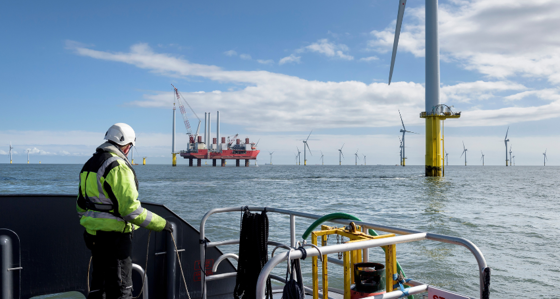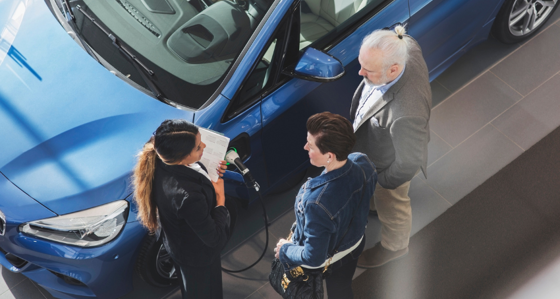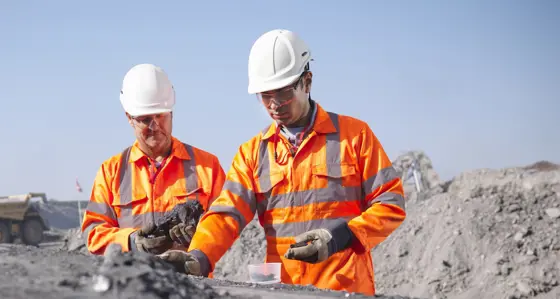
Commercial fleet electrification – adoption is accelerating, but barriers remain
8 August 2023
Together, transport and heating for residential homes in the UK contribute 45% of our emissions. Rapid progress on these two sectors is vital if the UK is to meet its net zero commitments.
In late June 2023, we assembled another roundtable of industry experts at our Green Buildings and Transport Network event for a spirited discussion on the state of play in fleet electrification. We followed this with a lively debate about decarbonising heating in homes.
Ryan Thomson, Partner and expert in Energy and Resources, and Anjali R Armstrong, expert in energy transition, set the scene for the first session, introducing two speakers: David Watts, Lead Product Manager for EVs for Volkswagen Financial Services and Ashley Tate, CEO of EV payment specialists Mina. Bringing together their expertise from both the product, infrastructure and operational sides of the market, David and Ashley highlighted the drivers behind recent progress, and the roadblocks the industry still needs to overcome. These introductions sparked lively discussion and debate from participants across the sector - digging into how this market might evolve in the future.
Fleets and company cars define the UK’s used vehicle market
Several facts dictate the current makeup of the UK car market:
- 50% of new car registrations in the UK are registered by businesses
- Virtually all commercial vehicles are registered by businesses
- Annually, used car sales make up 80% of total UK vehicle sales.
Electrifying fleets of commercial vehicles and company cars, together with Salary Sacrifice Schemes, represent a huge opportunity to shape the makeup of the UK’s used vehicle market for years to come. Ultimately, the greater the adoption of EVs on fleet, the greater the choice of EVs in the used car market for future retail buyers.
Fleet electrification has accelerated over the last few years
After the early promise of the UK’s first commercially available EVs in 2010, progress over the following decade was frustratingly slow. However, in the last three years, multiple tailwinds have lined up to supercharge EV adoption, shifting EVs from the luxury, early adopter market towards the mainstream, both for commercial and retail buyers. We covered three of these in detail:
1. More vehicle models give buyers more options to choose from
The choice and availability of EVs on the market has boomed since 2020, with competition in the market increasing as legacy vehicle makers catch up with the industry’s first movers. Buyers now have significantly more choice, both across price range and vehicle type. For example, carmaker Vauxhall will have an electric version of every model in its range by the end of 2024.
2. A favourable tax environment has strongly correlated to EV demand in the UK
The UK government’s 2020 decision to cut company car tax on EVs to 0% transformed the market overnight. It sent a powerful message, incentivising businesses, and employees to consider EVs when purchasing fleet vehicles. And while taxes on EVs are fixed now at 2% until April 2025 (and then will increase 1% each year until 2028), this is still a fraction of the amount of tax drivers of petrol, diesel and hybrid cars pay. If we want to continue the update of EVs, the UK government need to be mindful of the rate of tax increase for EVs.
3. Investment boost into charging infrastructure is critical as more people transition to EVs
A decade ago, charging an EV meant having the space and the money to invest in a home charger, or relying on a patchy network of public chargers. In the last two years however, the number of public charging points has doubled. Investment in charging infrastructure is growing rapidly, reducing the perception that EVs as inconvenient.
As pressure grows on companies across the economy to cut emissions, so do the downstream incentives for businesses to electrify their fleets. Responding to this demand, companies with large fleets of vehicles are electrifying to win tenders for new business and retain existing business. A virtuous cycle is in progress.
Challenges, both real and perceived, hold the market back for fleet electrification
As the UK’s cost-of-living crisis bites, the affordability of new EVs for retail buyers is under strain with EV sales now driven by business registrations. The outsized impact of fleet and company car purchasing decisions on the makeup of the UK’s used car market means that driving adoption of EVs by business buyers is becoming an important factor in decarbonising road transport in the UK.
While progress is being made to electrify fleets, with some of the UK’s largest commercial fleets already operating significant numbers of EVs, barriers to adoption still exist. Not all fleet vehicles are the same, and some remain stubbornly tricky to electrify, including HGVs and operational vehicles for utilities companies and the construction industry.
The key to increasing adoption is to overcome buyer’s perceptions of challenges, which often don’t match reality. These perceptions include EV ranges, charging times and billing complexity, which deter potential buyers, however in practice, these challenges may not be issues at all.
Our attendees did not shy away from discussing other challenges, highlighting the need to ensure that systems are in place to compensate fleet EV users for the actual costs they incur for charging their vehicles, given the significantly lower cost and taxation of home charging versus public charging.
The time to electrify your fleet is now
While the market, infrastructure, and vehicles available are not yet perfect, participants agreed that it’s vital for companies to start electrifying their fleets. Laggards risk falling behind competitors by waiting for infrastructure and systems to be ‘finished’. One participant used the analogy of waiting for the latest iPhone to be released before deciding that smartphones are a good technology to adopt.
Thank you to all the participants who made this such a fantastic discussion We’ll be holding our next roundtable event in October. If you’d like to join our Green Buildings and Transport Network, please get in touch with Anjali Armstrong.
Our Experts

Related Insights

Trump trade tariffs: Impact on the UK EV uptake
The global automative industry is at a critical juncture, shaped by intersecting forces of electrification, geopolitical trade tensions, and national decarbonisation policy.
Read more
Driving economic growth by securing a cleaner and resilient future for the North Sea
Our report, published in conjunction with Offshore Energies UK (OEUK), outlines how the North Sea can continue to play a pivotal role in the energy system as the world shifts to net zero, while positioning the UK as a resilient, innovative and competitive player in the global energy landscape.
Read more
From early adopters to early majority: Driving the next phase of EV growth
As EVs are moving beyond the early adopter phase, what are the principles needed for mass market adoption and progressing towards net zero targets?
Read more
Crossing the industry divide to drive decarbonisation across Asia-Pacific
Resources organisations are identifying opportunities in the unfamiliar overlap between energy, mining and metals.
Read moreIs digital and AI delivering what your business needs?
Digital and AI can solve your toughest challenges and elevate your business performance. But success isn’t always straightforward. Where can you unlock opportunity? And what does it take to set the foundation for lasting success?